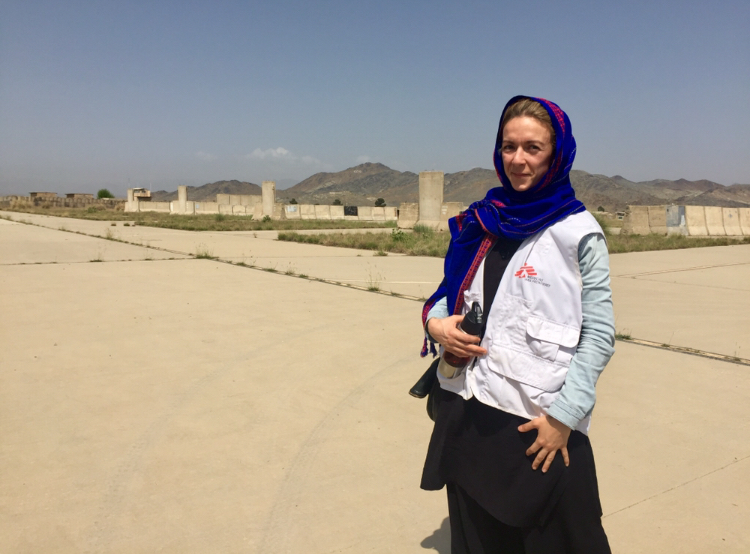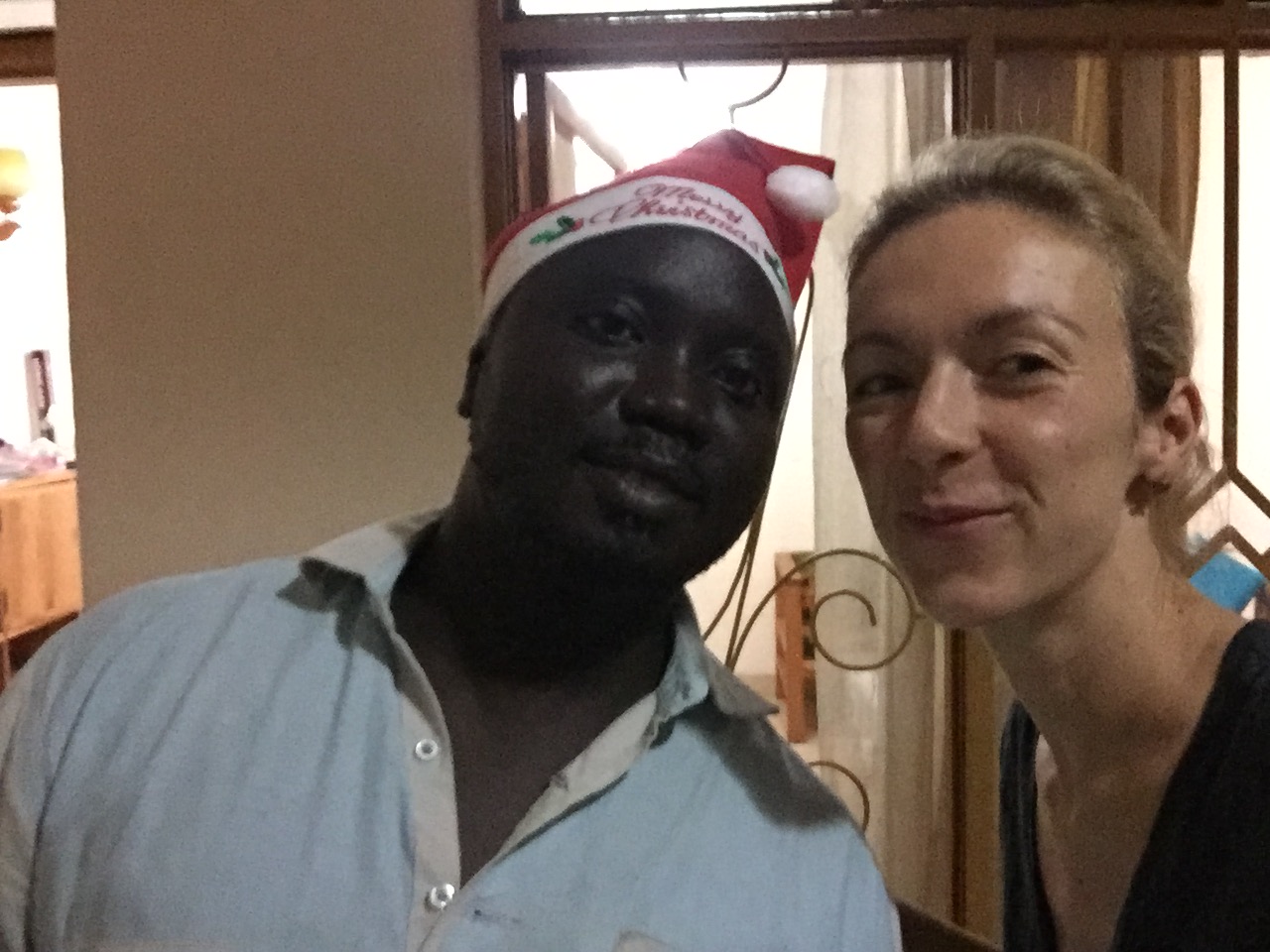MORE WITH LESS
"I realized it is possible to do a lot with fewer resources. It was a matter of being creative, interpreting things differently, watching closely all the patient’s signs. It was like going back to the basics of anesthesiology."
Amélie Delaporte, a 31 years old anesthesiologist returned from her third mission with MSF. We asked her 8 questions about her experience.
Why did you choose anesthetics as a specialization?
I initially wanted to specialize in surgery but an internship in intensive pediatric care made me change my mind. I realized I was fascinated with the entire body system and how everything is related: the heart to the lungs to the kidneys to the brain. I also find something simply magical about the moment of putting the patient to sleep and the awakening. Every patient, royalty or less advantaged, is equal at that moment and they convey their trust in you.
How did your MSF experience differ from your previous work experience?
I am specialized in anesthesia and reanimation. In Belgium I worked as an anesthesiologist in Erasme, St Pierre and Brugmann/Queen Fabiola hospitals in Brussels. So far, I have done 3 missions for MSF: Burundi, Afghanistan and Burundi again. I stayed 4 weeks in Bujumbura in Burundi working in a trauma center and 2,5 months in Khost in Afghanistan in a maternity ward. In Bujumbura we mainly saw severe car and motorbike accidents, burned patients (mainly children) but also torture victims, bullet and grenade wounds. At the maternity ward in Khost (with over 80 to 100 deliveries per day!) I dealt with complications during child birth, eclampsia and pre-eclampsia, organ failure and severe pathologies.
My position at MSF was ‘technical referent’ for the local medical team. I did not see myself as a supervisor per se. Of course I had to take end decisions but my local colleagues were very capable and I preferred to give them enough autonomy, to be at their disposal if needed and to support them in finding solutions themselves. A big part of my role was also training.

Why did you want to work for MSF?
It was my childhood dream! But I gave it a lot of thought. After 11 years of studying, I was at a point in my life where I felt like settling down with my boyfriend but I knew that if I would not leave with MSF now, I would never fulfill this childhood dream. I discussed it with my family and boyfriend and we agreed I should do a couple of short missions, as anesthesiologists can go on missions of around 6 weeks. It feels a bit like putting my life on pause, but for a good cause and for the most enriching experience.
Did you have doubts or fears before leaving?
Of course I did, but I had the chance to talk to a lot of co-anesthesiologists with MSF experience, so I felt I was prepared enough. My biggest fear was not to be up for the task and not to be able to find the right solutions.
What did you learn?
So much, on a personal and professional level! Firstly, the contact with the patients was so rewarding. I realized how much I could do for a patient with fewer resources. In Belgium, we have machines to monitor everything. We feel the need to use plenty of catheters for the patient to survive. For example; a patient with a severe hemorrhage: In Europe we would keep them in a coma and put a catheter in an artery to monitor his heartbeat and tension. We would add a catheter in a vein to administer medicine and measure even more vital signs. All this was not possible in the field – however we were still able to obtain incredible successes. That is how I realized it is possible to do a lot with fewer resources. It was a matter of being creative, interpreting things differently, watching closely all the patient’s signs. It was like going back to the basics of anesthesiology.
"I realized it is possible to do a lot with fewer resources. It was a matter of being creative, interpreting things differently, watching closely all the patient’s signs. It was like going back to the basics of anesthesiology."
How was it to work in a multicultural environment?
In Afghanistan I wore a veil all the time but I didn’t mind at all. The 2 nurse-anesthetists and 1 anesthesiologist I worked with (all males) were amazing. I thought it would be difficult as a woman to manage an all-male team, but they were so open-minded and motivated. They would help me translate to the patients if the translators were not there and if body language failed. They also patiently explained certain local customs. For example, they taught me that a pat on the shoulder is not done in Afghanistan. Looking back, the contact with the local colleagues was one of the most rewarding experiences.
Tell us about a patient or a case you will never forget.
I will never forget Estelle. In Burundi, a seven year old girl called Estelle was brought into the hospital. She was hit by a car and suffered from a cranial traumatism. We did not have the means to do brain surgery in our hospital but her condition was too severe to be moved anywhere else so we took her in. She was in a coma for 7 days in the intensive care unit showing signs of cerebral complications but we tried to care of her as good as we could. I feared for brain bleeding or for an oedema but miraculously, on the 8th day, she woke up and started showing signs of improvement. She could not eat, sit up or walk but bit by bit she progressed and healed. I had prepared the mother for the worst but she never gave up hope. It was so beautiful to see them leave the hospital together.
"You need to be confident in your capabilities. You also need to be optimistic and dynamic, able to accept to work with less technology, be autonomous and not be scared."
What does it take to work for MSF ?
You need to be confident in your capabilities. You also need to be optimistic and dynamic, able to accept to work with less technology and not be scared. My most difficult moments in the field were the uncertainty when a patient was not doing well and the autonomy you need to take important decisions. But I absolutely recommend it to anyone ! I learned so much about myself. I am able to put things in perspective as I realize how lucky we are here in Europe. I also feel I have grown so much professionally : I am more calm and I can manage difficult situations better.
Back to the profile Anesthesiologist
